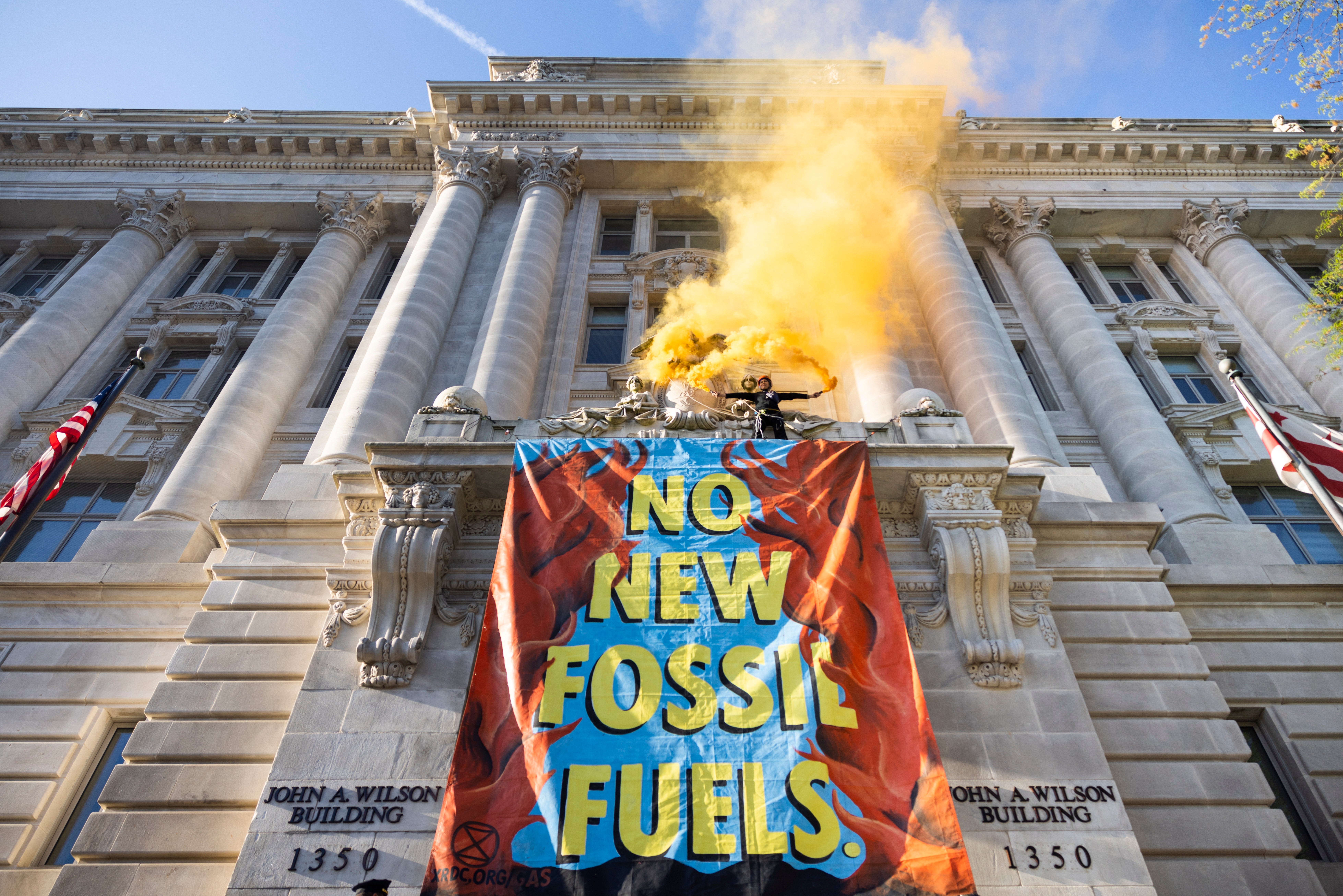Climate change isn’t a death sentence for the human race — demoralizing Gen Z isn’t the answer
Activism is important, but it has to be done in a way that doesn’t instill hopelessness in everyone around us

Your support helps us to tell the story
From reproductive rights to climate change to Big Tech, The Independent is on the ground when the story is developing. Whether it's investigating the financials of Elon Musk's pro-Trump PAC or producing our latest documentary, 'The A Word', which shines a light on the American women fighting for reproductive rights, we know how important it is to parse out the facts from the messaging.
At such a critical moment in US history, we need reporters on the ground. Your donation allows us to keep sending journalists to speak to both sides of the story.
The Independent is trusted by Americans across the entire political spectrum. And unlike many other quality news outlets, we choose not to lock Americans out of our reporting and analysis with paywalls. We believe quality journalism should be available to everyone, paid for by those who can afford it.
Your support makes all the difference.In 1970, a group of college students created a day to celebrate and fight for a most worthy cause – our planet. Fifty-two years later, a new generation of young people are struggling beneath the weight of the environmental challenges we face, which impact nearly every facet of their lives. As the most activism-driven generation our country has ever seen, Gen Z is laser-focused on climate change. For many young folks, climate change dominates their thoughts and actions.
While their antics may seem silly, this constant activism has taken its toll on their mental health and outlook on life. It may be tempting to scoff at the notion, but statistics increasingly show a correlation between perceived environmental health and the real mental health of younger generations.
To put it simply, the kids are not all right.
Data from the American Psychological Association shows that 58 percent of American teens feel stressed out by climate change, while almost half of young people across the world have climate anxiety that affects their day-to-day life. Recently, a striking majority of OkCupid users noted that climate denial was their top deal-breaker for dating, and one-fourth of childless Americans say that climate change factored into their decision not to procreate. Finally, The Atlantic reports that 44 percent of American high school students experience “persistent feelings of sadness or hopelessness” – the highest level of teenage sadness ever recorded, no doubt compounded by loneliness and stress.
But, why? Gen Z grew up in a world in which the media bombarded them with the message that climate change was on track to steal away their futures. Since they were children, millennials and Gen Z have been inundated with images of sad polar bears on melting ice caps, vast stretches of forests on fire, and animals soaked in oil following the infamous BP spill. Mainstream climate leaders like Al Gore and John Kerry cherry-picked worst-case climate scenarios while the climate movement railed against corporations and government, insisting that only systemic change could save us and that individual actions amount to nothing. When confronted with this news, young people have ended up depressed rather than inspired.
The most significant issues of our time have been communicated to young people in a way that hasn’t instilled a sense of responsibility to act, but instead, a feeling of imminent doom and hopelessness. Climate change isn’t a death sentence for the human race, and society has made a grave error by convincing younger generations that it is. Of course, climate change is a severe challenge that threatens our future, but we shouldn’t be without hope this Earth Day or any other.
The environment is a crucial issue for my generation, and it’s not red or blue. It’s part of who we are – an inherent value. That’s why it’s become a deal-breaker in dating and why the political conversation around climate change has grown so heated. Climate denial isn’t just a policy disagreement for Gen Z; it’s a dismissal of a deeply-rooted fear.
Rather than shrugging or laughing these fears off, the generation that created Earth Day should remind today’s young people that there is still cause for celebration. For instance, the regenerative farming efforts highlighted by Kiss the Ground are already in use by farmers all over the world and have massive carbon sequestration potential. Plans for small modular nuclear reactors are being submitted for federal approval and could revolutionize the way we view clean energy. The American bison, once almost extinct, now once again roams the western plains.
In all the talk of societal change and revolution, we’ve forgotten about the solutions we can implement today and the larger ones we can begin to work toward. By convincing young people that there’s no future to look forward to, we’ve taken away the desire for actionable solutions that make a difference. Earth Day is the ideal time to remind ourselves that we should be solution-oriented when it comes to helping our planet, not just reactionary and scared.
Danielle Butcher is the executive vice president at the American Conservation Coalition (ACC). Follow her on Twitter @DaniSButcher
Join our commenting forum
Join thought-provoking conversations, follow other Independent readers and see their replies
Comments